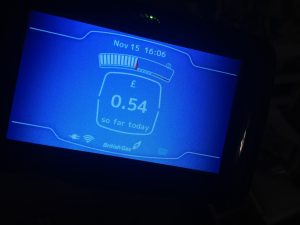
The UK’s first smart meter research facility is set to open at Salford University this Friday.
The ‘Smart Meters>Smart Homes’ laboratory will be supplying government and consumers with advice and data on smart meters.
The new facility is based at The University of Salford’s Joule House which is home to EnergyHouse, the world’s first whole building test facility, and the recently-unveiled EnergyHouse 2.0.

The smart meter research facility will also aim to explore how smart meters best work alongside various home technologies such as storage devices, smart speakers, sensors and wearables.
Lead researcher, Professor Will Swan, said: “Domestic energy systems are becoming more complex due to the advent of renewables, time-of-use tariffs, energy storage and a greater fluidity in the customer-supplier relationship.
[su_pullquote align=”right”]What is a smart meter?A smart meter is a new type of meter the automatically sends readings to your energy supplier. It is connected to a screen that tells you how much gas and electric you’re using and how much this is costing, allowing the homeowner to identify where savings can be made. The meters aim to put an end to estimated bills and help people save money, as well as tackling climate change.[/su_pullquote]
“What we currently have is an explosion of tech – but little impact on common objectives like lowering bills, cutting carbon and customer satisfaction.”
Rebecca Dibb-Simkin, Octopus Energy Director of Product and Marketing, said: “We are delighted to be involved with such an innovative research facility, and that our Agile Octopus, the first energy tariff to truly use the power of the smart meter to enable customers to use power when it’s cheapest, or greenest, can play such a part in the home of the future.”
As part of a national scheme, 30 million homes and small businesses are set to have smart meters installed by 2020, however, the campaign has reportedly faced criticism from those who say there has been long delays and increased costs as a result of the installations.
However, according to the BBC, recent figures show that installation rates for the third quarter of the year have dropped by 10 percent, meaning the government may struggle to reach its 2020 target.
The government does however, still insist that this figure will be met.














Recent Comments